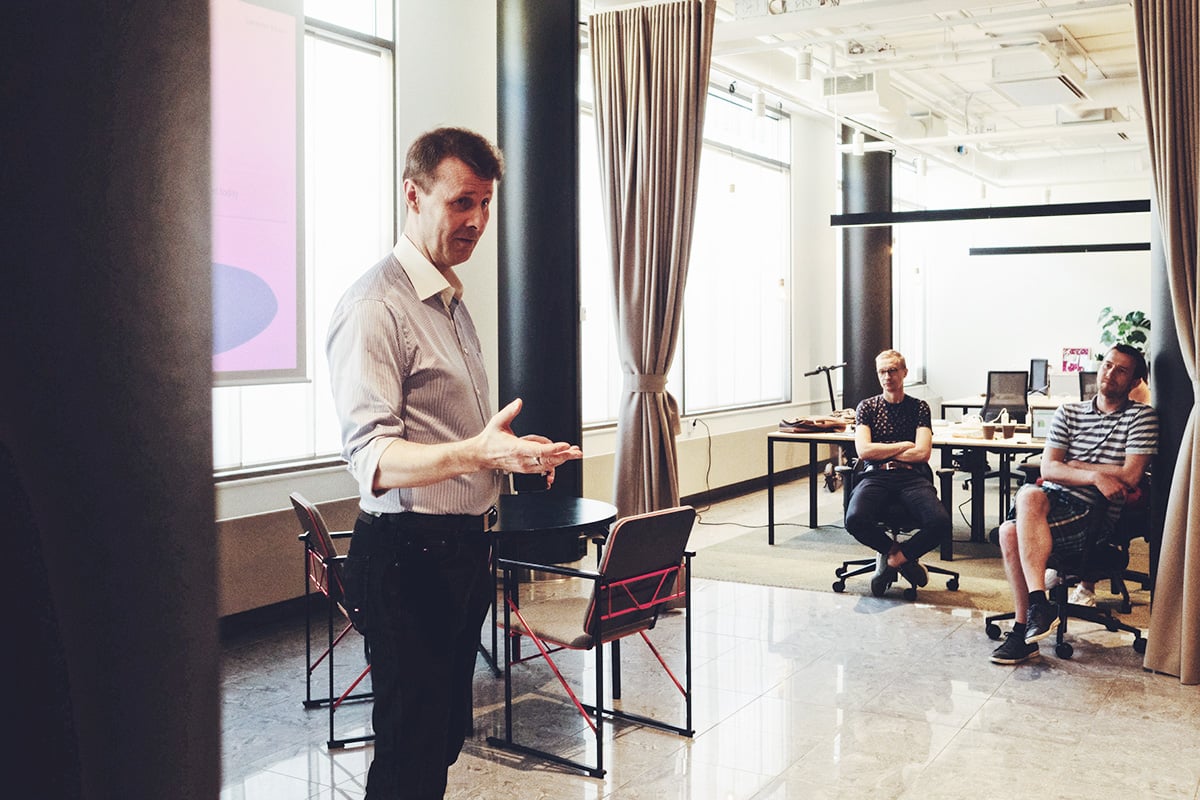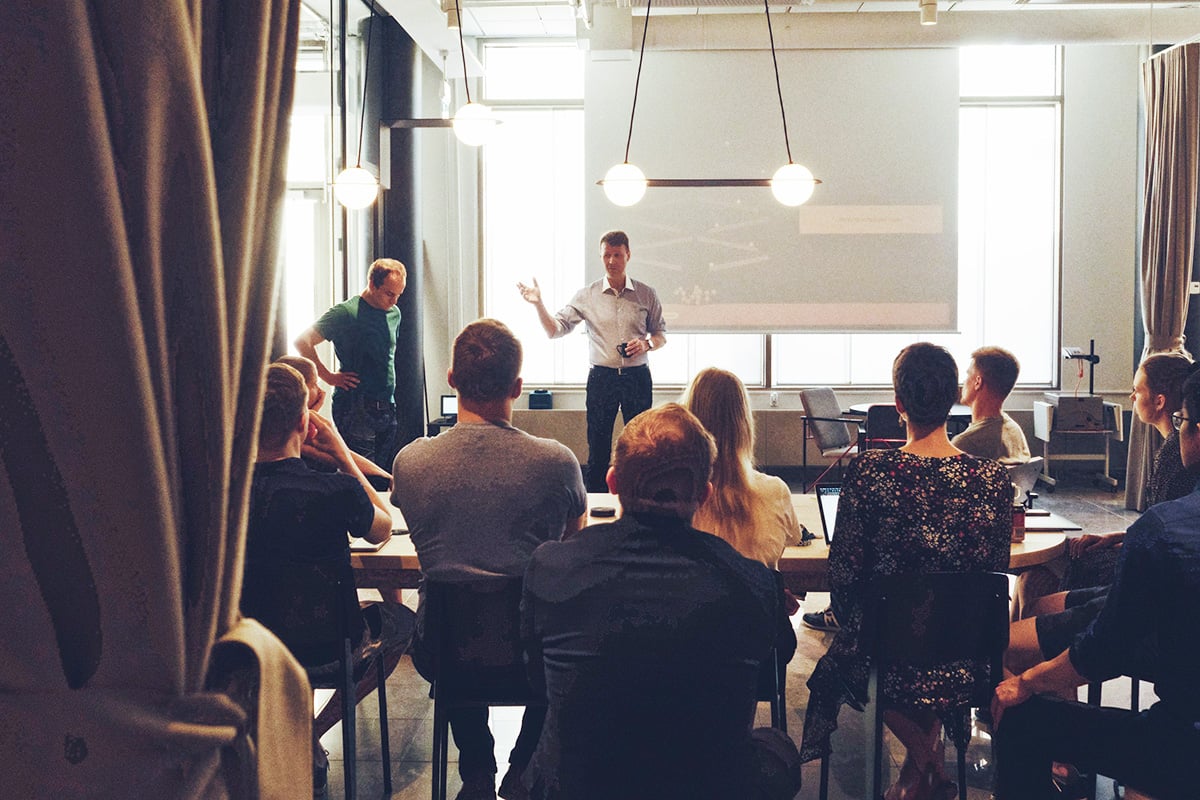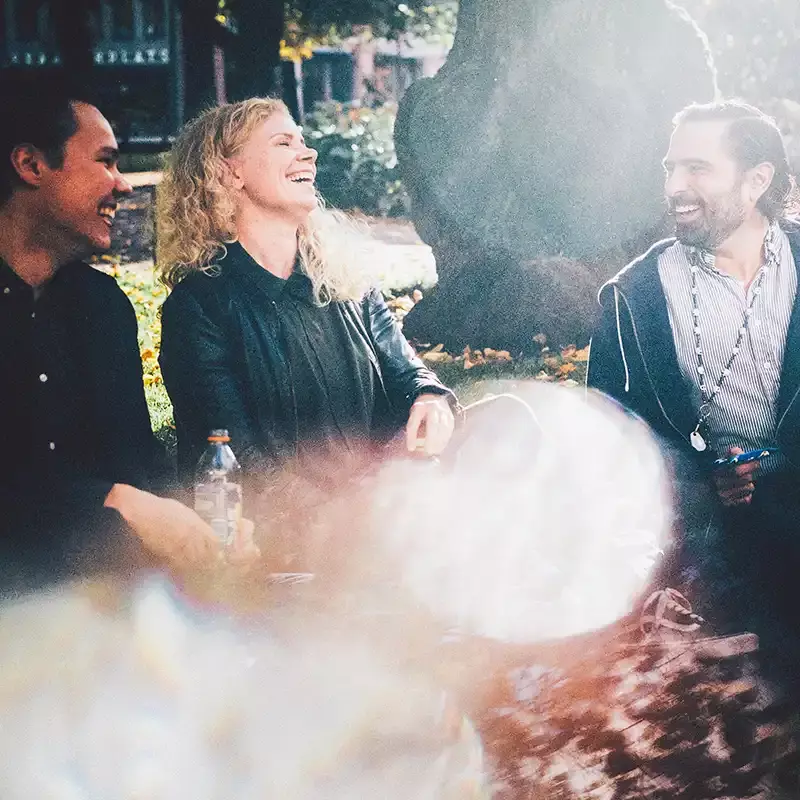The Data Handbook
How to use data to improve your customer journey and get better business outcomes in digital sales. Interviews, use cases, and deep-dives.
Get the book Risto Siilasmaa, the Chairman of Nokia and F-Secure, shared his thoughts on how digitalisation is changing sales. Risto is an entrepreneur who divides his time between Nokia, F-Secure and 30 other companies helping them grow and become the best in business. He’s also a family man, who just wrote a book while studying machine learning architectures and Chinese on the side.
Risto Siilasmaa, the Chairman of Nokia and F-Secure, shared his thoughts on how digitalisation is changing sales. Risto is an entrepreneur who divides his time between Nokia, F-Secure and 30 other companies helping them grow and become the best in business. He’s also a family man, who just wrote a book while studying machine learning architectures and Chinese on the side.
In your view, how has digitalisation changed sales?
I have been an investor in Small Giant Games from the first friends and family round. I was not convinced that the game would be great, but I was impressed by the team. When the game shipped, the usage data from the players showed that the game would be a big hit even if the game was still not something I fell in love with.
The first example of a really impressive data analytics platform that I have seen came from Supercell. They had built a predictive system to estimate the customer lifetime value from a very small amount of usage data. This can be a huge competitive advantage to a gaming company as they can adjust their customer acquisition cost based on real future cash flows from those customers.
Naturally, for a B2B business, it’s a very different game. At Nokia, we have built a customer perceived value index, a statistical model based on customer surveys. We use it to try to predict market share shifts, to assess our and our competitors’ competitiveness and predict sales. It allows us to see where we’re behind (by region, country, categories, products and even strategy).
We see a lot of startups doing amazing things within digital sales, but bigger companies are getting behind day by day. How to change that?
In Europe we don’t have that many big digital companies where digitalisation would be part of the company’s DNA – in the Valley and China, it’s the opposite. We need to find ways to talk about digital sales transformation with the leadership in traditional companies in a way that resonates with them. We can already see great examples of huge shifts in entire industries, such as airplane engine companies’ business models moving away from selling the engines to charging customers based on uptime.
So how can we help these companies? What’s the journey from strategy to implementation?
Change needs people who own it. Change needs processes and strategy. Change needs to come from the inside, but it can be kindled with guerilla projects that aim for the leadership’s attention.
Like I said earlier, there is so much companies can do with the data they already have. It’s such a shame that so much of the data is not either being collected or is not being used in meaningful ways. In digital, a customised offering is one of the best ways (sometimes the only way) to differentiate from competition. Creating customised products based on the data you have about your customers makes it harder for them to churn. It’s all about loyalty and stickiness.

What would be your best advice for bringing machine learning and AI into digital sales?
First of all, you should be using machine learning already, if not, shame on you. At least make some experiments.
As with all technology, it’s just a tool you need to learn to use. The important thing is to have a constant push to become better. The most difficult thing about machine learning is to decide what questions to ask. You will get the most probable answers to any question, but you need to come up with the questions.
Why do you think customer centricity is only now gaining global traction?
As with most things, the interest fluctuates. Customer centricity was big in the 80s, and it's now coming back. Digitalisation is enabling unprecedented ways to collect data and machine learning is doing all that used to be manual work. At F-Secure we collect 7 billion events every single day which we need to go through, evaluate which ones are malicious, which are not. Every day we see 200 000 samples of possible malware, out of which 20 00 are malicious. There is no way that even an army of human beings could go through all that data, and without errors.
How could companies make better use of AI?
For a number of coming years, many companies can focus on picking the low hanging fruits. There is no need to do research in AI, just use what is already there. In general, companies have a lot to gain with AI. Statistically speaking, big breakthroughs will not come from Europe, but from China and the US who are investing a lot more into AI, but it does not mean we can’t get lucky.
All companies want to be bleeding edge, they want future proof solutions and sophisticated methods. Let’s make that a goal we can all work towards.

You have also invested in Futurice Group, what got you interested?
In the early 90s, I began to invest in startups that had great ideas. Quite quickly I realised that good ideas are not enough, you need to have great teams to bring those ideas into reality. Therefore it makes more sense to invest in great teams instead of great ideas.
I have a lot of respect for the culture in Futurice Group – these companies want to the best at what they do and understand that they can only achieve that goal by helping their people to become the best they can be. I appreciate that.
Learn how to thrive at the turning point of digital sales by reading The Digital Sales Transformation Handbook. Discover how digital sales transformation is changing companies, and how your business can leverage this change through organisational development, customer experience, ways-of-working and technology. Featuring interviews with industry experts, such as Marta Dalton (eCommerce Director for Unilever and Coca-Cola previously), Risto Siilasmaa (Founder of F-Secure) and Antti Kleemola (CDO of VR, Finnish Railways).
The Data Handbook
How to use data to improve your customer journey and get better business outcomes in digital sales. Interviews, use cases, and deep-dives.
Get the book




